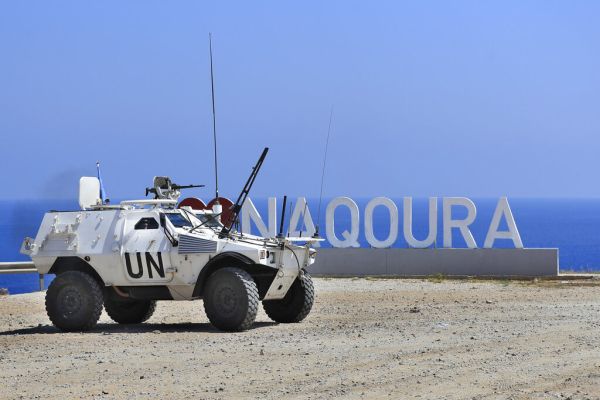The introduction of international forces negatively impacts Israel more than it does Israel’s enemies, says Maj. Gen. (res.) Yaakov Amidror.
By Yakkov Lappin, JNS
The idea of deploying an international force to help secure Gaza and deal with Hamas is fraught with challenges, and historical precedents point to the recurring failure of such initiatives.
One version of the idea explored in recent months by Israeli Defense Minister Yoav Gallant is a multinational Arab force led by the United States. The idea appears to have failed to attract any volunteer countries so far.
Historical examples and current realities in Gaza illustrate why such a mission would likely be ineffective at best, or end up hampering the Israel Defense Forces operations at worst.
Maj. Gen. (res.) Yaakov Amidror, a former national security adviser to Israeli Prime Minister Benjamin Netanyahu and a senior research fellow at the Jerusalem Institute for Strategy and Security, provided perspective on past experiences with U.N. forces in the Middle East.
“There is a long history with U.N. forces in the Middle East, and perhaps the most notable example is UNIFIL in Lebanon,” he told JNS. “The force never succeeded in properly reporting on what was happening on the ground,” said the former director of IDF Military Intelligence’s Analysis Division.
The inability of UNIFIL to monitor and report on Hezbollah’s activities, let alone enforce United Nations Security Council Resolution 1701, which bans Hezbollah from operating in southern Lebanon, is a precedent that is difficult to disregard when examining the Gaza context.
“According to the United Nations, no Hezbollah weapons have ever reached southern Lebanon,” said Amidror. “Furthermore, even when a claim arose, the force never succeeded in verifying it, because in most cases they were not allowed to enter suspected places,” he added.
Such restrictions severely hamper the ability of international forces to perform their duties effectively.
Amidror pointed out that the Six-Day War began in 1967 after the United Nations decided to withdraw its forces from Gaza at a critical moment, highlighting the unreliability of international forces in maintaining security during volatile periods.
“According to all experience in the Middle East, the United Nations is at most a bridging body between the sides, but never solved a problem or enabled supervision in a manner that enabled it to act,” he stated.
Furthermore, the introduction of international forces negatively impacts Israel more than it does Israel’s enemies, he said.
“When the United Nations is on the ground, it hinders Israel more than it does the terrorist organization facing it. Israel must take the U.N. force into account, while the terrorist organization can ignore them and even obstruct the international force in fulfilling its role—to the point of killing its soldiers,” he said.
This dynamic would be particularly problematic in Gaza, where Hamas can exploit the presence of international forces to its advantage, obstructing IDF operations and using international forces as cover, he cautioned.
“As a result, a U.N. presence is very negative from the security perspective of the State of Israel, and not only does it not help, but it is harmful,” he explained.
Professor Eyal Zisser, vice rector of Tel Aviv University and the university’s chair of contemporary Middle East history, noted that international forces tend to be deterred from confronting local terror forces like Hezbollah or Hamas.
Multinational forces “do not have a clear mandate to fight them [terror factions]; their general mandate is to maintain calm along the border,” he stated. This throws into deep doubt the ability of any international forces to deal with Hamas’s entrenchment in Gaza or future attacks by the terrorist group.
Zisser highlighted another critical issue—the unwillingness of countries contributing troops to incur casualties.
“The countries that sent the forces do not want losses and casualties, something that would lead to domestic criticism,” he explained. This aversion to risk leads to a cautious approach that undermines the forces’ operational effectiveness.
Additionally, Zisser argued, the forces are often deployed for a limited time and lack the long-term commitment required to achieve sustained security.
The temporary nature of international deployments means that commanders and soldiers on the ground are reluctant to engage deeply with the complexities of the conflict, he said. As a result, “They usually seek understandings with local elements to ensure calm for both sides,” he told JNS.
“If Israel eliminates Hamas and there will only be a vacuum, that’s one thing, but if Hamas remains on the ground and is armed, that’s a different matter,” he said.
He also pointed out the inherent difficulties in coordinating a coalition of countries for such missions.
“A coalition of countries is harder to mobilize than one country. It is enough for Jordan, for example, to decide that it does want to fight Hamas, and this would collapse the whole structure,” he said.
This lack of cohesion and unified purpose among international forces further diminishes their effectiveness.
“In short, it’s all up to Israel. No one will dismantle Hamas for us,” he concluded. He too cautioned that international forces will create new problems, because “when they are there, Israel will not be able to harm Hamas, which will hide next to them.”
A glance at Lebanon appears to confirm these doubts.
The Alma Center, which specializes in security challenges in the northern arena, noted in a report in December 2023 that Hezbollah frequently uses UNIFIL, as well as the Lebanese Armed Forces, as human shields.
“Hezbollah hopes that IDF retaliation fire will harm the human shield, limiting IDF activity and increasing international pressure on Israel,” according to the center.
International forces in Gaza will likely be exploited by Hamas in precisely the same manner.





